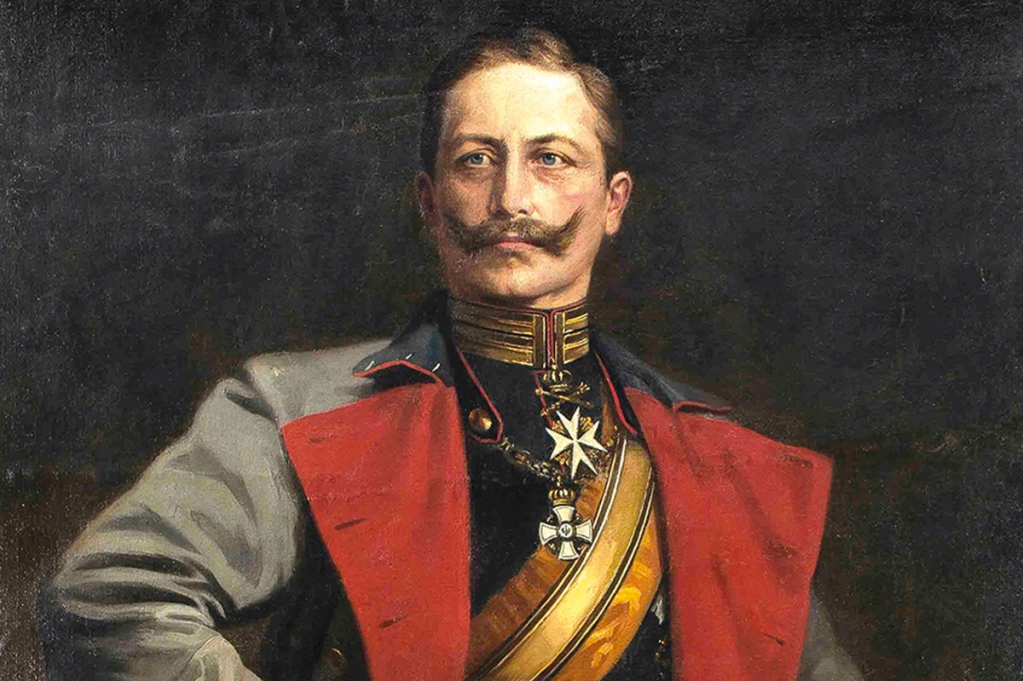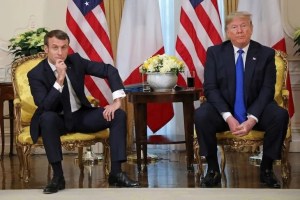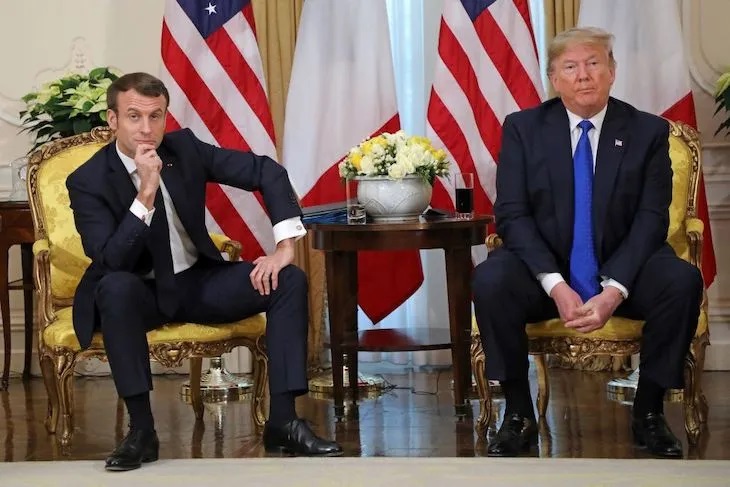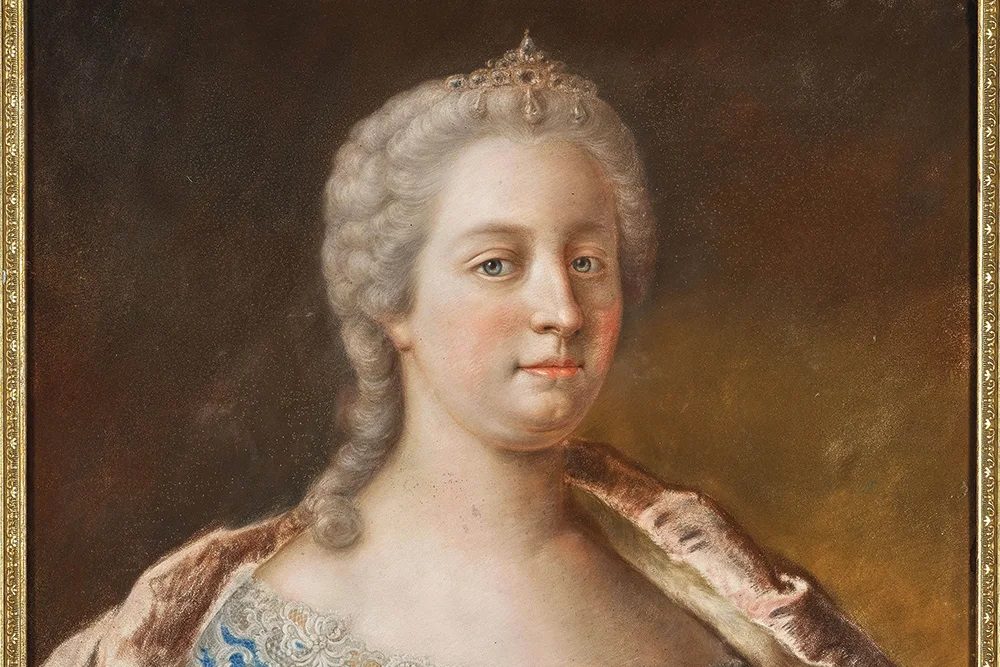The far right in Germany isn’t all angry young men with shaved heads, baseball bats and black boots. There are those who appear respectable, even intellectual. The Reichsbürger movement includes accountants, teachers and academics; many members are middle-aged. It’s a fractured network with vastly diverging world views, united in their belief that the current government is illegitimate.
The Reichsbürgers claim that the German empire was not legally abolished when it collapsed at the end of World War One and that it therefore continues to exist. To them, the so-called November Revolution of 1918, in which Kaiser Wilhelm II was forced to abdicate, ending the German monarchy, was a coup without legal basis. The governments that followed — beginning with the Weimar Republic and ending with today’s parliamentary democracy — have no right to exist. Today’s Bundestag can therefore be overthrown without qualms, even with violence if necessary. While this kind of extremism is still rare, there has long been residual monarchism in Germany. Around 10 percent of Germans support the restoration of the royals; among those under thirty-four, that number is nearly one in five.
Elisabeth R, arrested last month by state police, is alleged to be one of those extremist Reichsbürgers. She is not how you imagine a terrorist to be: a seventy-five-year-old retired teacher with shoulder-length white hair, pictured carrying her belongings in a brown potato bag. She is accused of plotting to overthrow the incumbent government to restore the German monarchy. Prosecutors say she is the head of a terrorist cell of Reichsbürgers called the United Patriots that attempted to procure weapons and explosives. One of her alleged co-conspirators, a fifty-four-year-old accountant named as Sven B, was arrested in April when police found an SS uniform and an AK-47 in his cellar.
When questioned by police, he admitted plotting to abduct the health minister Karl Lauterbach, the architect of Germany’s lockdown policies. Plans had been drawn up that included the potential need to kill members of Lauterbach’s security detail. Next, the group would have formally declared the restoration of the German constitution of 1871, when the country was first unified under Kaiser Wilhelm I. They would then have found a stand-in for the current president or chancellor who they could use to confer legitimacy on their revolutionary restoration.
Finally, the plan involved countrywide blackouts, brought about by attacks on the national electricity grid. The idea was to create chaos and cut the population off from the media so that “the new German government can begin its work unimpeded.” Sven B assumed that parts of the police and the army would be supportive of the plan.
It’s an idea that isn’t as far-fetched as it sounds: a few years ago a group of German commandos was disbanded when a far-right sergeant major was discovered with SS song sheets and thousands of rounds of ammunition buried in his garden. “He had a plan,” said the parliamentary commissioner for the armed forces at the time, “and he is not the only one.” Sven B wanted to be sure that Vladimir Putin, too, was on side. He admitted contacting the Russian president but wasn’t sure if his message had got through. Elisabeth R, who is known as the “countess” in the movement, was supposedly destined for a role in this new government.
There are other monarchist groups that lobby for a restoration of the Hohenzollern dynasty that once ran the country. One, Ewiger Bund, makes its own passports in a pre-1914 style which it then attempts to get stamped by a member of the old aristocratic families to gain citizenship of a lost imperial Germany. Many see Georg Friedrich, prince of Prussia and the great-great-grandson of Wilhelm II, as the only legitimate ruler of the country.
Elements within German society have long been susceptible to the esoteric. Biodynamic agriculture, which can involve practices such as burying bull horns full of quartz next to crops, has its largest following in Germany. Many former East Germans still believe that HIV is a man-made virus resulting from a disinformation campaign run by the Stasi and the KGB in the 1980s. Other more insidious elements have adopted parts of the American QAnon philosophy, mixing Covid conspiracies with theories about a secret global government. Some believe that it is Donald Trump’s destiny to free Germany from supposed foreign occupation, allowing Germans to abolish parliamentary democracy.
According to a 2020 survey, more than half the voters of the far-right party Alternative für Deutschland believe that “the world is controlled by secret powers,” as do 45 percent of non-voters. The AfD now leads the polls in the eastern parts of the country and is the fourth largest nationally, with 15 percent. Not all its voters subscribe to conspiracy theories, but the party often panders to such fears.
Kerstin Köditz, a spokeswoman for the far-left party Die Linke in Saxony, has argued that the authorities are still underestimating the problem of these extremist monarchists. She’s right, but there are problems too with how the German state reacts to dissidents.
According to the constitution, ratified in 1949, any attempt to change the country’s political framework is prohibited. The so-called “eternity clause,” enshrining an unchanging constitution, has led to Köditz’s own socialist party coming under investigation by the security services. The AfD is being monitored on suspicion of counter-constitutional behavior. For those inclined towards conspiratorial thinking, strict policing of politics confirms their fears about the state. Repression risks turning the weird into the dangerous.
This article was originally published in The Spectator’s UK magazine. Subscribe to the World edition here.

























